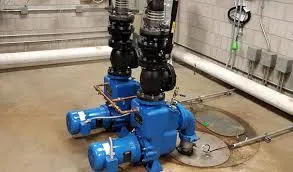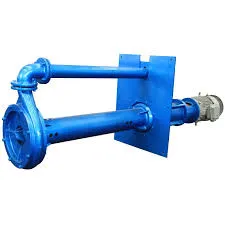TEL:
+86 13120555503
Swahili
- Afrikaans
- Albanian
- Amharic
- Arabic
- Armenian
- Azerbaijani
- Basque
- Belarusian
- Bengali
- Bosnian
- Bulgarian
- Catalan
- Cebuano
- Corsican
- Croatian
- Czech
- Danish
- Dutch
- English
- Esperanto
- Estonian
- Finnish
- French
- Frisian
- Galician
- Georgian
- German
- Greek
- Gujarati
- Haitian Creole
- hausa
- hawaiian
- Hebrew
- Hindi
- Miao
- Hungarian
- Icelandic
- igbo
- Indonesian
- irish
- Italian
- Japanese
- Javanese
- Kannada
- kazakh
- Khmer
- Rwandese
- Korean
- Kurdish
- Kyrgyz
- Lao
- Latin
- Latvian
- Lithuanian
- Luxembourgish
- Macedonian
- Malgashi
- Malay
- Malayalam
- Maltese
- Maori
- Marathi
- Mongolian
- Myanmar
- Nepali
- Norwegian
- Norwegian
- Occitan
- Pashto
- Persian
- Polish
- Portuguese
- Punjabi
- Romanian
- Russian
- Samoan
- Scottish Gaelic
- Serbian
- Sesotho
- Shona
- Sindhi
- Sinhala
- Slovak
- Slovenian
- Somali
- Spanish
- Sundanese
- Swahili
- Swedish
- Tagalog
- Tajik
- Tamil
- Tatar
- Telugu
- Thai
- Turkish
- Turkmen
- Ukrainian
- Urdu
- Uighur
- Uzbek
- Vietnamese
- Welsh
- Bantu
- Yiddish
- Yoruba
- Zulu
Telephone: +86 13120555503
Email: frank@cypump.com
Februari . 15, 2025 07:30 Back to list
Self Priming Sewage Pump
Sewage treatment plant pumps are crucial components in the process of wastewater management, ensuring the efficient and effective transport of waste from residential, commercial, and industrial sources to facilities where it is treated and made safe for release into the environment. The operation and selection of these pumps hold significant importance for the overall performance of sewage treatment plants.
Trustworthiness in sewage treatment solutions is greatly enhanced by the selection of pumps manufactured by companies with a proven track record of quality and reliability. Brands that offer extensive warranties, provide comprehensive user guides, and have established networks for parts and service can significantly reduce downtime and maintenance costs. Moreover, technological advancements in pump design and motor technology improve the energy efficiency of these systems. Advances such as variable frequency drives for motors and smart controls can lead to significant reductions in energy consumption, thereby promoting both cost-effectiveness and environmental sustainability. Experience in the field shows that integrating automated monitoring systems, such as Supervisory Control and Data Acquisition (SCADA), helps in real-time monitoring and control of pump operations. These systems provide critical data and alerts that enable prompt action and therefore, minimize the risks associated with pump failures. Concluding, the role of pumps in sewage treatment plants extends beyond mere mechanics—they are vital to the infrastructure’s ability to process waste efficiently while maintaining health and safety standards. Decisions regarding their selection should not only focus on the initial cost or brand popularity but should also consider long-term performance metrics and support from the manufacturer. By understanding the nuances of different pump types and leveraging cutting-edge technologies, operators can improve the resilience of sewage treatment operations, ensuring reliable service delivery to communities and industries alike. In sum, the careful selection, operation, and maintenance of sewage treatment plant pumps form the backbone of effective wastewater management. By adhering to best practices and leveraging advanced technologies, operators can ensure optimal performance and sustainability of these essential systems.


Trustworthiness in sewage treatment solutions is greatly enhanced by the selection of pumps manufactured by companies with a proven track record of quality and reliability. Brands that offer extensive warranties, provide comprehensive user guides, and have established networks for parts and service can significantly reduce downtime and maintenance costs. Moreover, technological advancements in pump design and motor technology improve the energy efficiency of these systems. Advances such as variable frequency drives for motors and smart controls can lead to significant reductions in energy consumption, thereby promoting both cost-effectiveness and environmental sustainability. Experience in the field shows that integrating automated monitoring systems, such as Supervisory Control and Data Acquisition (SCADA), helps in real-time monitoring and control of pump operations. These systems provide critical data and alerts that enable prompt action and therefore, minimize the risks associated with pump failures. Concluding, the role of pumps in sewage treatment plants extends beyond mere mechanics—they are vital to the infrastructure’s ability to process waste efficiently while maintaining health and safety standards. Decisions regarding their selection should not only focus on the initial cost or brand popularity but should also consider long-term performance metrics and support from the manufacturer. By understanding the nuances of different pump types and leveraging cutting-edge technologies, operators can improve the resilience of sewage treatment operations, ensuring reliable service delivery to communities and industries alike. In sum, the careful selection, operation, and maintenance of sewage treatment plant pumps form the backbone of effective wastewater management. By adhering to best practices and leveraging advanced technologies, operators can ensure optimal performance and sustainability of these essential systems.
Share
Next:
Latest news
-
ISG Series Vertical Pipeline Pump - Chi Yuan Pumps | High Efficiency, Low Noise
NewsAug.07,2025
-
Industrial Chemical Pumps for Sale | High-Performance & Reliable
NewsAug.07,2025
-
ISG Series Vertical Pipeline Pump - Chi Yuan Pumps Co., LTD.|High Efficiency&Low Noise
NewsAug.07,2025
-
ISG Series Pipeline Pump - Chi Yuan Pumps | High Efficiency, Reliable Performance
NewsAug.07,2025
-
ISG Series Vertical Pipeline Pump - Chi Yuan Pumps Co., LTD.
NewsAug.06,2025
-
ISG Series Vertical Pipeline Pump-Chi Yuan Pumps|Efficient, Durable, Low Noise
NewsAug.06,2025










